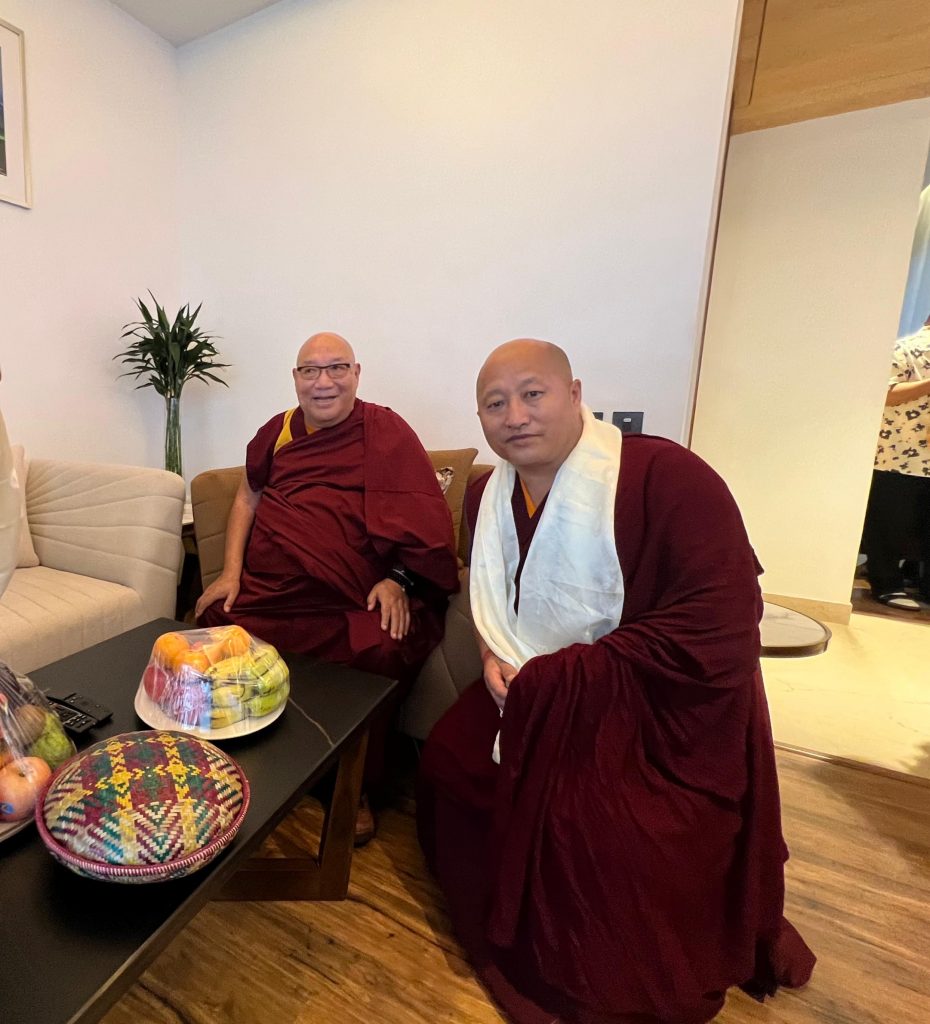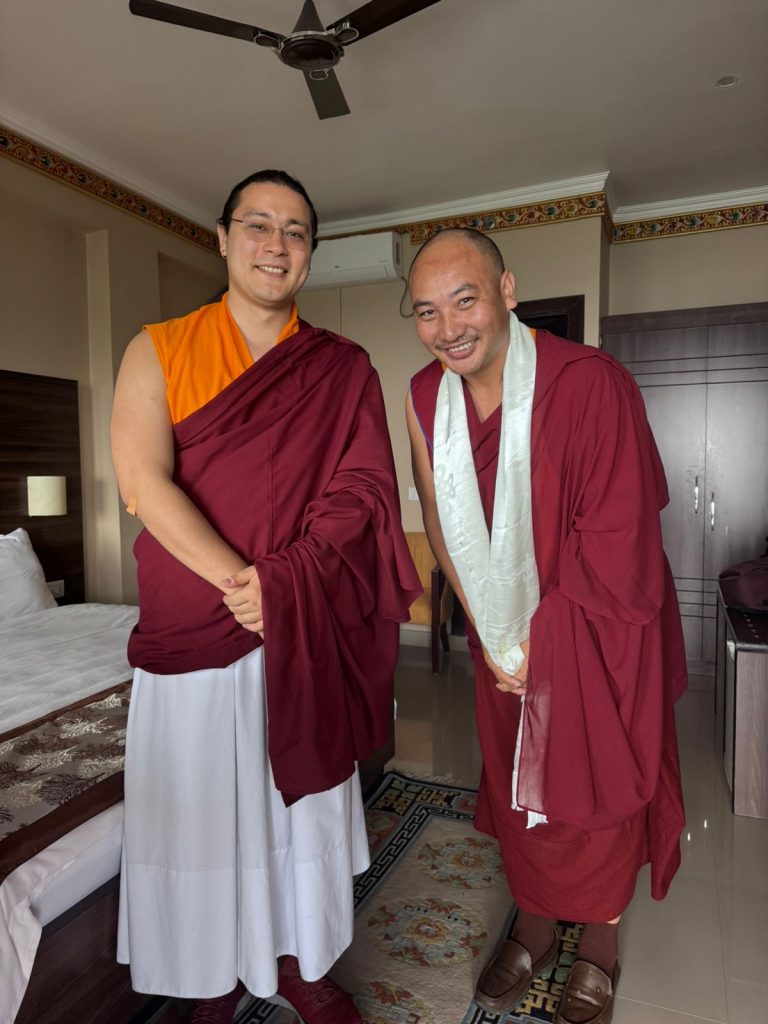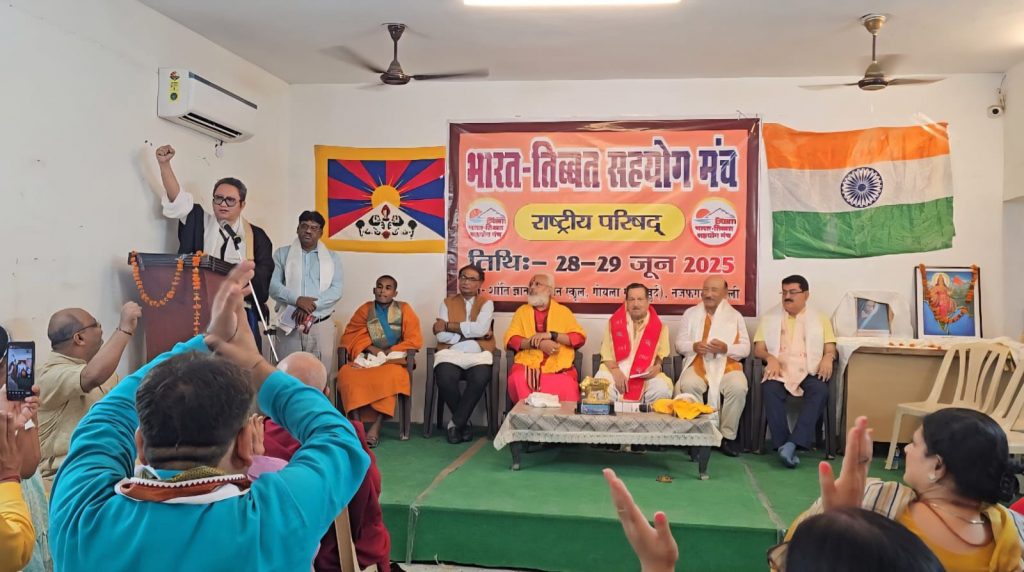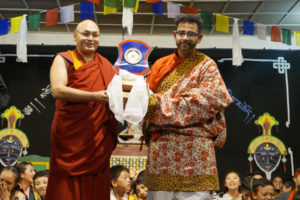
Lower TCV, Dharamsala : Speaker of 16th Tibetan Parliament-in-Exile, Ven. Khenpo Sonam Tenphel attended the ‘Inter-House Opera Competition on Drowa Sangmo’ as Chief-Guest, held in in accordance with the festivity of His Holiness the Dalai Lama’s birthday celebration at Lower Tibetan’s Children Village (TCV) school on July 4.
Present at the program were the concerned officials of the both the Upper and Lower TCV, respective teachers and students as well in the hall of Lower TCV school, Upmuhal, Dharamshala.
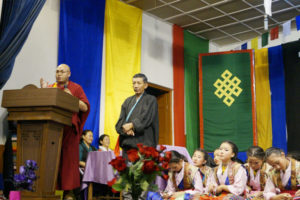
After subsequent presentation of Drowa Sangmo by each houses, Speaker Ven. Khenpo Sonam Tenphel presented the award to Zachu House for winning the competition and thereafter, addressed the audience by lauding the hard-works and the due diligence put into the remarkable two-hours presentation of opera by both the teachers and student of both Upper and Lower TCV.
‘The culture of Tibetan is not only unique, but is also like an identity of Tibetan people and thus, of utmost significance,’ said the Speaker.
‘For instance, today’s opera was first founded by Druptho Thangtoh Gyalpo in the 14th Century, from then on till now in this 21st Century, over 600 years has passed yet the atavistic tradition and culture continues to prevail. Through these culture and tradition, many lessons can be taken.
When you read the narratives of Tibetan epics, one can delve into its depth for various intricate meanings. However, if we contemplate on it from three perspective, its shows the importance of compassion; futility of resentment and jealousy; and confrontation of any obstacles with virtue. For instance in today’s opera, we see the two fishermen and butchers, who were commanded to kill the two young children by the evil Queen, moved to tears by the siblings love for each other and ultimately saves them and later rewarded for their virtuous action at the end. It is clear that if any obstacle is confronted with virtue, it will only bear good fruit. Therefore, preservation of such culture, which serves in contributing to our society’s benefit is very important,’ said the Speaker.
‘It is quite clear to see that the script of Tibetan opera has undergone many improvement and has become more detailed in its narrative. Earlier, the performers used to divulge into singing with lots of tunes, with its content almost incomprehensible but nowadays, there is dialogue in-between and lucid tunes, which is easily understood. In this ways, our scripts have improved in par with the contemporary times. If we were to compare between the Tibetan students in Tibet and in exile, I think the plausibility of retaining higher innate Tibetan cultural propensities lies with Tibetan students in exile. In terms of education, it would require comprehensive research to know, for such assumptions cannot be made otherwise. Therefore, you must endeavor diligently towards studying our culture, so that in near future, retention of innate cultural propensity, potency or great achievements could be possible. Today’s performance on this stage by all of you shouldn’t be the last bequest but must rather continue to hold our culture dear and carry on towards its preservation,’ he continued.
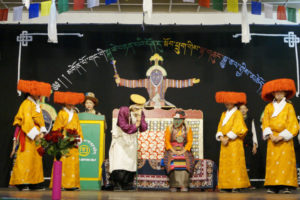
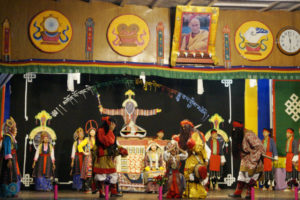
Applauding the teachers and students alike for the inter-house opera competition by the said school, where Tibetan schools generally hold traditional dance competition, Speaker stressed on the importance of modern education.
‘Our contender being powerful country, our contention against it must solely be on the basis of education with collective capabilities, for, commensurating it with our population and economy is very difficult. Therefore, bringing forth potent influence is only possible through education,’ he said as he gave examples of public figures such as Karl Marx, who though born in Germany, influenced Europe, Russia and China bringing forth tremendous changes in their sociopolitical phenomena; of Nelson Mandela, whose put an end to apartheid in South Africa and Mahatma Gandhi, who led his people and country to independence.
‘Similarly, the bond and affection shared between a teacher and his students is also very important. In Tibet, such bonds are very strong. If a teacher advises his students on certain mater, the students, like magnet attracting ferromagnetic materials, would hold such advice very dear to his heart and put them into practices. Even though such bond are also strong in exile, ameliorating such would only bring more prosperity within the school, be it the standard of school; assimilation of whatever knowledge imparted by the teacher to the students; and ultimately the effective contributions of such students in one’s community, race and country. Therefore, if the bond and respect for each other is strong, it becomes a favorable condition in achieving our common goal. Likewise, it is very important to put into practices the advises of His Holiness the Dalai Lama,’ he concluded.
Thereafter, with the singing of Tibetan national anthem by everyone, the program came to its end.
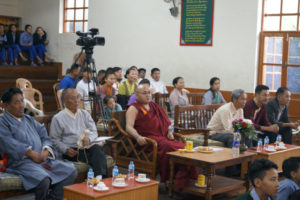
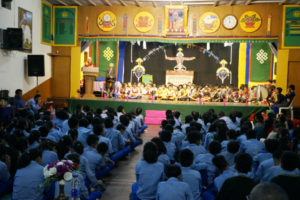
*In case of translation discrepancy, treat the Tibetan version as original.
